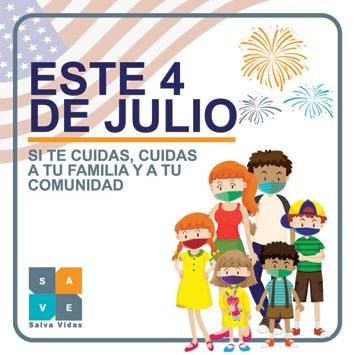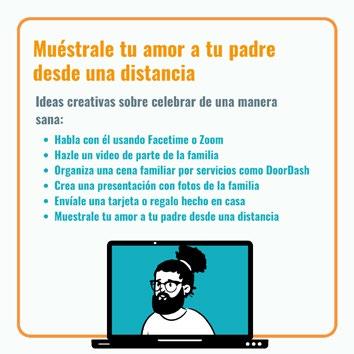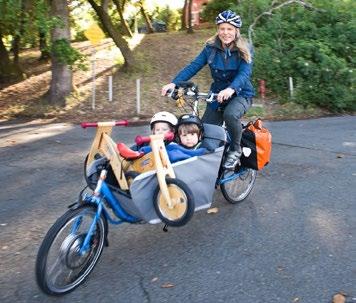
4 minute read
PV Pushes COVID-19 Prevention in Latinx Community, By Jenny Kurzweil
COMMUNITY NEWS PV Pushes COVID-19 Prevention in Latinx Community
By Jenny Kurzweil
Advertisement
Across the nation, data shows that COVID-19 is disproportionately affecting Black and Latino communities at drastically higher rates.
According to a New York Times report, Black and Latino are three times as likely to become infected and nearly twice as likely to die from the virus as white people. Unfortunately, this story is no different in Santa Cruz County where Latinos make up 33% of the population and yet make up 50% of the known cases; 49% of all cases are in Watsonville, which has a Latino population of 84%.
In addition to the public safety messaging created by the County of Santa Cruz Health Services Agency and SAVE Lives Santa Cruz County, the Community Foun dation has provided funding for a coalition of civic and grassroots leaders from across the Pajaro Valley to start a communications task force to create targeted, culturally relevant messaging that focuses on harm reduction and prevention.
A 4th of July message in Spanish shows everyone in the family wearing a mask to prevent the spread of the contagious coronavirus COVID-19.
Join Ecology Action for a virtual film screening of “Motherload” in celebration of Bike Month, followed by a live panel discussion and Q&A with film director and local leaders and bike luminaries at 6:30 p.m. Wednesday, July 29. “ M o t h e r l o a d ” is an award-winning crowdsourced docu
“Unfortunately, we’re seeing COVID-19 disproportionately affect communities of color,” said Community Foundation CEO Susan True. “This illness thrives in multigenerational family households, cramped housing, and enclosed work spaces — where many Latinx community members are located. Prevention messages will be most effective when they come from the strength and deep cultural knowledge of the community. ”
The Community Foundation has granted Pajaro Valley Prevention and Student Assistance $20,000 and DigitalNEST $10,000 out of the COVID-19 Response Fund to support this communications work.
“The Pajaro Valley is rich in diversity and talented people. Responding to the disproportionate number of COVID cases in our region, leaders from various organizations came together to collectively expand culturally and linguistically relevant health education for the community. This has been a true collective effort rooted in the belief that we can all work together to save lives,” said Erica PadillaChavez, CEO of Pajaro Valley Prevention and Student Assistance.
“Watsonville is a young community and we need to ensure that our youth are getting messages that resonate with them so they hear the importance of staying safe. High school and collegeaged youth from the Digital NEST are using their technical, communications, and media skills to lead a campaign to better inform their peers of ways to protect their community from Erica Padilla-Chavez mentary about a new mother’s quest to understand the increasing isolation and disconnection of the digital age, its planetary impact, and how cargo bikes could be an antidote.
Director Liz Canning cycled everywhere until she had twins in 2008. Hauling babies via car was not only unsustainable but took the freedom and adventure out of life, and Liz felt trapped. She Googled “family bike” and uncovered a global movement of people replacing cars with cargo bikes. Liz set
Father’s Day messages in Pajaro Valley in English and Spanish offer alternatives to a big family get-together on the holiday to keep Dad safe.


COVID,” said Jacob Martinez, Digital NEST executive director.
The first spike in cases in Santa Cruz County came after Mother’s Day and data continues to indicate that the majority of cases are most often developing in multi-generational and inter-household gatherings. Accordingly, messaging from the Pajaro Valley coalition has centered around major events and holidays--graduation, Father’s Day, and Fourth of July.
Dr. Marm Kilpatrick, an infectious disease specialist at UC Santa Cruz serves as a scientific advisor to the Pajaro Valley communications task force in addition to the Economic Recovery Council, a group of nonprofit and business leaders working with the County of Santa Cruz to facilitate a safe, phased and enduring reopening of the local economy. Dr.
Jacob Martinez Kilpatrick has emphaout to learn more, and “Motherload” was born.
Liz and dozens of other moms and cargo bike enthusiasts explore how bikes can build happier, healthier humans, families and communities.
To attend the live panel and Q&A, and view the film for free , register via Ecology Action’s Bike Month homepage. Fortyeight hours prior to the panel, participants will be sent a link to view the film. n
Register for film access here: Ecoact.org/ bikemonth sized four key elements to help reduce the risk of COVID-19 Transmission: 1. Brief (keep interactions under 5 minutes) 2. Protected (wear a mask) 3. Spatially distant (at least 6’ apart) 4. Well ventilated (outside is best)
The funding to the task force is part of the nearly $2 million in relief granted by the Community Foundation through the COVID-19 Response Fund. 100% of gifts from individuals to the Response Fund go directly to the community.
The Foundation prioritizes grants to those hit hardest by the pandemic: undocumented families, low-wage essential workers, seniors, and people with severe illness. Rental assistance and food continue to be the greatest needs. n •••
Learn more about the Foundation’s grants at work: https://www.cfscc.org/updates/ covid-19-grants
Give to the COVID-19 Response Fund:
Free Screening of ‘Motherload’ July 29 Features Talk by Director
https://www.cfscc.org/donate











